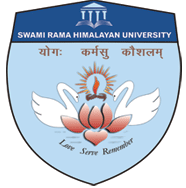Young adults in India constitute the majority of Indian population. Poor lifestyle choices and behaviours during this young age are responsible for one third of morbidities and two thirds of untimely deaths in adults. Risk taking behaviour and poor lifestyle choices resulting from peer pressure, parental discord and poverty include violence, substance abuse and involvement with gangs. An alarming 13% of young adults in India are involved in drug and substance.
In India there are no sensitization programmes addressing burning issues of drug abuse and its ill effects in school children or out of school children. India does not have a substantial substance abuse policy till date.
The need of the hour is to develop a strategy focussing exclusively on each aspect of the risk-taking behaviour, while keeping a bird’s eye view on their health as a whole. Collaboration of efforts across the community is the only way to attain a healthy adolescence and henceforth a safe and productive adulthood. The cost benefit of investment in substance abuse prevention strategies is now well recognized.
The department of community medicine has created an algorithm for identifying the adolescents and youth at risk of initiation of substance abuse as well as those indulged in it, and providing tailor made interventions to tackle this problem at various levels in communities and schools with support of peer group and mentors.
Consistent care and support provided during adolescence is reaped in adulthood by violence prevention, good mental health and excellent physical health. Hence investment in substance abuse prevention will in future reap rich dividends in the form of a safe and progressive community.
ACTIVITIES DONE UNDER EK KOSHISH
Faculty Members:
Prof Jayanti Semwal
Prof A K Srivastava
Dr DeepShikha
Dr Vidisha Vallabh
Ms Akanksha Uniyal
Substance-use prevalence survey
The adolescents of Doiwala were interviewed in depth for risk taking behaviour and substance abuse using a pre-tested structured questionnaire (ASSIST and CRAFFT).
Following the personal interviews with nearly 2015 respondents, BCC sessions were conducted where the participants interacted with trained professionals and received knowledge about substance use.
Hands-on training session for ASHAs and ANMs.
Multiple hands-on training sessions were organized by the faculty in double shifts ensuring complete compliance with social distancing and public gathering norms. The participants, 74 in total, were taught about the existing substances that are abused in the area and how to identify the sign and symptoms. The participants had good retention of the topic as shown by their post tests and affirmed their part in eradication of substance use in Doiwala. All the participants were provided training modules (developed by the trainers), workshop kit and a working lunch.


